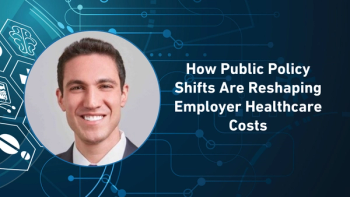
- Pharmaceutical Commerce - March 2010
Small Distributors Serve a Vital Role in the Pharmaceutical Distribution Supply Chain
Recently, the New York Times ran an
My reaction to this assertion is one of great regret and continued frustration. It is truly unfortunate that the small and independent pharmaceutical distributor is once again being trotted out as a sacrificial lamb and being labeled as the source of all that is wrong with our nation’s drug supply chain. Simply put, their commentary was reckless and irresponsible.
As the president of the National Coalition of Pharmaceutical Distributors (NCPD), a national organization dedicated to supply chain safety and the well-being of the small pharmaceutical distributor, I take particular exception to the writers’ assertions. Their assessment is troubling in that it utilizes specific incidents from early in the last decade to continue smearing a sector of the industry that is predominately comprised of hard-working and family-owned small businesses.
Recognizing that representatives from every link of the supply chain have experienced problems with product adulteration and counterfeiting, I believe we all share the common goal of ensuring that criminal elements are eliminated from our industry. Were there criminals who had inappropriately obtained distribution licenses operating in south Florida during the writing of Ms. Eban’s book? Absolutely. Were these same criminals typical members of our industry? Absolutely not.
NCPD is dedicated to reforming and improving the laws governing our nation’s pharmaceutical supply chain — i.e., strengthening pedigree requirements to the greatest extent feasible. We are members of organizations operated by the FDA and DEA that provide our members the ability to report suspicious activities and we are partnered with similar programs in the private sector as well.
Further, since 2006 NCPD has engaged with key congressional offices and federal agencies to enact meaningful pedigree-reform legislation at the federal level. This legislation is expected to be re-introduced in the coming weeks and NCPD will aggressively work to ensure its passage. By requiring the serialization of all products and establishing a single, federal pedigree standard, the safety of our nation’s prescription pharmaceuticals will improve immeasurably. As the only sector of the pharmaceutical industry currently required adhering to pedigree laws, NCPD and its members enthusiastically anticipate the passage of this measure.
In anticipation of the 2009 deadline for pedigree compliance in California (subsequently extended to 2015), many NCPD members have initiated the process of conforming with serialization and e-pedigree requirements. Even though our members are small businesses do not possess vast resources for infrastructure enhancement, it is universally recognized that the investment necessary for having an e-pedigree/track and trace system in place is crucial to ensure that our sector is doing its part to secure the supply chain.
NCPD member businesses maintain a solid and constructive relationship with their House and Senate representatives. Among the issues expected to be considered this year is the improvement of our nation’s pharmaceutical supply chain. More specifically, it is anticipated that legislation to overhaul the laws governing the chain of custody (pedigree) for pharmaceutical products will be introduced in the coming weeks. Presently, NCPD is working with key House and Senate offices on this legislation, which is widely expected to mirror California’s existing pedigree law.
NCPD’s 2010 annual conference, to be held in Las Vegas this August, will again feature key representatives from federal and state regulatory and enforcement agencies to provide guidance and suggestions to our members on matters concerning supply chain safety. In addition, this conference will include industry stakeholders from the manufacturing and retail segments of the pharmaceutical community. This conference will serve to showcase the tremendous strides our members are making toward the ultimate goal of securing the national pharmaceutical supply chain.
ABOUT THE AUTHOR
Karen L. Moody is president of Atlantic Biologicals (Miami), a VAWD-certified, independent distributor of pharmaceuticals and biologics, founded in 1998. She is also a founder and the president of the National Coalition of Pharmaceutical Distributors (Miami; ncpdusa.org.)
Articles in this issue
over 15 years ago
The Pill as OTC -- Access Versus Health Concernsover 15 years ago
Going Around the Brand 'Positioning Wheel' With Kantar Healthover 15 years ago
Spotlight on the EMD Serono Specialty Digest, 6th Editionover 15 years ago
Retail Pharmacies and the Health and Wellness RenaissanceNewsletter
Stay ahead in the life sciences industry with Pharmaceutical Commerce, the latest news, trends, and strategies in drug distribution, commercialization, and market access.




